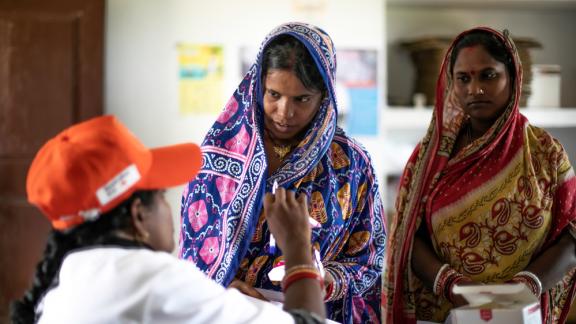
Filter our news by:


| 18 March 2021
India becomes a leading advocate for abortion rights in South Asia region
India becomes a leading advocate for abortion rights in South Asia region The passage of Medical Abortion of Termination (Amendment) Bill 2020 in the upper house of Indian parliament is a progressive decision and victory for women’s rights. We congratulate the Indian government and the civil society. India has now become the only country in South Asia region to provide abortion beyond 20 weeks. This will have an impact beyond India’s borders-- for the region-wide movement on legal, accessible and safe abortion. The change in Section 3 of the Medical Termination of Pregnancy Act, 1971, allows to extend the upper limit for medical termination of pregnancy to 24 weeks, from the present stipulation of 20 weeks, for certain categories of women. These categories will include 'vulnerable women', rape survivors, victims of incest, pregnancies with foetal abnormalities and minors. While this win inspires us and other sexual and reproductive rights organizations, we hope action is taken to ensure all inequalities in access to abortion are addressed--- not only the polices but services are also designed to meet the needs of all. Dr Kalpana Apte, Secretary General of Family Planning Association of India (IPPF Member Association in India), said: "The amendments to the MTP Act were much awaited and they would advance the reproductive healthcare agenda for women. The expanded access to safe abortions up to 24 weeks is great enabler helping women to exercise their reproductive rights. However, the full potential of these amendments can only become a reality if followed by appropriate systems strengthening. FPA India is committed to work towards translating these amendments as reality through grassroots level collective action." ENDS For media queries please contact Regional Communications Manager Himanshi Matta; [email protected]

| 29 January 2021
IPPF welcomes President Biden’s decision to repeal the Global Gag Rule
The International Planned Parenthood Federation (IPPF) welcomes the news of President Biden’s decision to keep his promise and repeal the harmful Global Gag Rule (GGR) - also known as the Mexico City Policy. Since its expanded reintroduction in 2017 by the previous administration, the Global Gag Rule has contributed to an increase in unintended and high-risk pregnancies, unsafe abortions – culminating in unnecessary maternal deaths. For IPPF, 53 healthcare projects in 32 countries were impacted by GGR, with some Member Associations losing up to 60% of their funding. IPPF’s Director-General, Dr Alvaro Bermejo said: “I welcome the decision by President Biden to repeal the Global Gag Rule. “The expanded reintroduction of the gag was callously designed to deny women the right to decide what happens to their body. Whilst we know this policy is intended as a tool to attack abortion care by the anti-choice movement, not only has it led to reproductive coercion, it has cut deeper into healthcare provision: from HIV prevention programs to maternal health to contraceptive access – no one was spared the fallout of this policy. “What lies ahead of us is years of work to undo the harm caused by Global Gag Rule, and to build back a better and stronger relationship with the U.S. – one where our work is not under threat from future anti-sexual and reproductive health administrations. To protect the rights of future generations of women and girls, we ask that the Biden-Harris administration take the necessary steps to permanently repeal the Global Gag Rule. Without a permanent repeal, the global gag remains a constant threat to women, girls, youth and marginalized communities. Reproductive rights, bodily autonomy and the human right to decide what happens to your body cannot be at the mercy of a pen stroke. “IPPF looks on with hope and welcomes the opportunity to work closely with the Biden-Harris administration to protect and advance sexual and reproductive healthcare for all.” And President and CEO, Planned Parenthood Federation of America, Alexis McGill Johnson said: “Over the past four years, the United States didn’t just fail to support global reproductive health care access — it actively blocked it. Today, we applaud the beginning of a new chapter, as the Biden-Harris administration puts an end to the devastating global gag rule, which has prevented millions of people around the world from receiving essential health care. We look forward to working alongside the administration and Congress to pass the Global HER Act, to permanently protect access to sexual and reproductive health care across the globe from changes in White House political control. It is long past time that the United States proudly declares to the world that reproductive rights are human rights.” IPPF would like to thank the international community who stepped in and stepped up to help fill the funding gap that was left by the Global Gag Rule. Together, we will continue to fight and deliver sexual and reproductive health and rights. -ENDS- For media inquiries please contact Regional Manager Communications, Himanshi Matta; [email protected] or [email protected] - (+44) 2079398227
| 29 May 2020
SAFE ABORTION SERVICES AMID COVID19 - AGILE, ADAPTIVE & INNOVATIVE RESPONSE FROM SOUTH ASIA

| 05 August 2020
IPPF welcomes the ruling to extend abortion care from 20 weeks to 24 weeks in India
The MTP (Amendment) Bill, 2020 passed by the Lok Sabha (Lower House of Parliament) has indeed been a momentous victory for women and girls of India. The celebrations are incomplete without recognising the tireless efforts of Family Planning Association of India (FPAI) and all the Civil Society partners, activists and women who never stopped demanding women’s rights to safe and legal abortions. IPPF applauds the Cabinet on this landmark decision which approved the bill allowing abortion up to 24 weeks. The Bill allows abortion up to 24 weeks of gestational age for vulnerable categories of women including rape survivors, victims of incest, pregnancies with foetal abnormalities and minors. Replacing the term’ married couple’ to woman and her partner highlights that the government is acknowledging the changing social fabric in the country. It also takes a positive step towards ensuring confidentiality of information for the woman, except to a person authorised in any law which is in force. The Bill can now be said to be truly woman-centric which recognizes and respects a woman’s autonomy, her choice and her rights. Dr Kalpana Apte (Secretary General, Family Planning Association of India) said: “It was a very long battle that we have fought along with other CSOs and women groups. Although, the amendments are not fully what we fought for, we are happy with many achievements. The gestation age is expanded, now unmarried women can access safe abortions and reduction in numbers of specialists required for second trimester are some of the important wins. The battle is indeed won, the fight is still on to ensure women's sexual and reproductive rights are supported and protected through enabling legislation!” IPPF Director-General Dr Alvaro Bermejo added: “This bill passing represents a huge shift for the rights of women in India to access safe abortion care- though there is more work to be done. This win would have not been possible without the hardwork and dedication of the Family Planning Association of India, civil society partners and activist. Let this win in India inspire other organizations and activists to continue their fight for safe and legal abortion.” While the increase in gestational limit is only for “vulnerable categories of women”, there is a need to improve accessibility to abortion service for all women who want/need it. In addition to addressing stigma, a key requirement is to increase access to safe abortion services in India – in each and every part of the country women get high quality, dignified and stigma free abortion services, only then we can claim universal health coverage for all.










